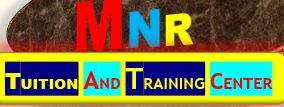Course Title: C++ Programming
Course Overview: This course introduces students to the C++ programming language, covering fundamental concepts, object-oriented programming principles, data structures, algorithms, and applications. Students will learn about C++ syntax, data types, control structures, functions, classes, inheritance, polymorphism, templates, and standard library.
Course Duration: 12 weeks (3 hours per week)
Module 1: Introduction to C++
- History and overview of the C++ programming language
- Setting up a C++ development environment (compiler, IDE)
- Writing and running simple C++ programs
- Basic syntax and structure of C++ programs
- Understanding the differences between C and C++
Module 2: Variables, Data Types, and Operators
- Introduction to variables and data types in C++
- Basic arithmetic and logical operators
- Working with integers, floating-point numbers, characters, and booleans
- Type conversion and type casting
- Understanding const keyword and reference variables
Module 3: Control Flow and Decision Making
- Conditional statements (if-else, switch-case)
- Nested conditional statements
- Loops (while, do-while, for)
- Loop control statements (break, continue)
- Using the ternary operator for concise conditional expressions
Module 4: Functions and Parameter Passing
- Defining and calling functions in C++
- Function arguments (pass by value, pass by reference, default arguments)
- Function overloading and function templates
- Recursion and recursive functions
- Inline functions and their advantages
Module 5: Arrays and Strings
- Introduction to arrays and strings in C++
- Declaring, initializing, and accessing elements in arrays
- Array operations (sorting, searching, manipulation)
- Working with character arrays and string manipulation functions
- Multi-dimensional arrays and arrays of strings
Module 6: Object-Oriented Programming (OOP) Basics
- Introduction to object-oriented programming (OOP) concepts
- Classes and objects in C++
- Defining class members (attributes, methods)
- Constructors and destructors in classes
- Encapsulation and data hiding
Module 7: Classes and Objects
- Defining class methods and member functions
- Access specifiers (public, private, protected)
- Static members and static member functions
- Constructors with initialization lists
- Friend functions and friend classes
Module 8: Inheritance and Polymorphism
- Introduction to inheritance and derived classes
- Implementing inheritance in C++
- Access control in derived classes
- Function overriding and virtual functions
- Understanding polymorphism and runtime polymorphism
Module 9: Pointers and Dynamic Memory Allocation
- Introduction to pointers and pointer arithmetic
- Dynamic memory allocation and deallocation using new and delete operators
- Pointers and arrays
- Pointers and functions
- Memory management and memory leaks
Module 10: Standard Template Library (STL)
- Overview of the Standard Template Library (STL)
- Containers (vectors, lists, stacks, queues, maps, sets)
- Iterators and algorithms (sorting, searching, manipulation)
- Generic programming with templates
Module 11: Exception Handling
- Understanding exceptions and error handling in C++
- Handling exceptions using try-catch blocks
- Handling specific exceptions and multiple exceptions
- Rethrowing exceptions and custom exception classes
- Exception safety and exception specifications
Module 12: File Handling and Input/Output Operations
- File handling in C++ (file streams, opening and closing files)
- Reading from and writing to text files
- File modes (input, output, append)
- Binary file I/O operations
- Error handling in file operations
Module 13: Advanced Topics in C++
- Smart pointers (unique_ptr, shared_ptr, weak_ptr)
- Move semantics and rvalue references
- Lambda expressions and closures
- Multithreading and concurrency in C++
- Introduction to C++17 and C++20 features
Module 14: Introduction to Data Structures
- Overview of common data structures (arrays, linked lists, stacks, queues, trees, graphs)
- Implementing data structures in C++
- Basic algorithms for data manipulation and traversal
- Analyzing the time complexity and space complexity of algorithms
- Practical examples and applications of data structures
Module 15: Capstone Project
- Students will work on a capstone project to apply the skills learned throughout the course
- Project topics may include building a console-based application, a data structure implementation, a simple game, or any other C++-based project
Assessment:
- Assignments and projects after each module
- Mid-term and final exams covering the entire syllabus
- Evaluation of the capstone project
